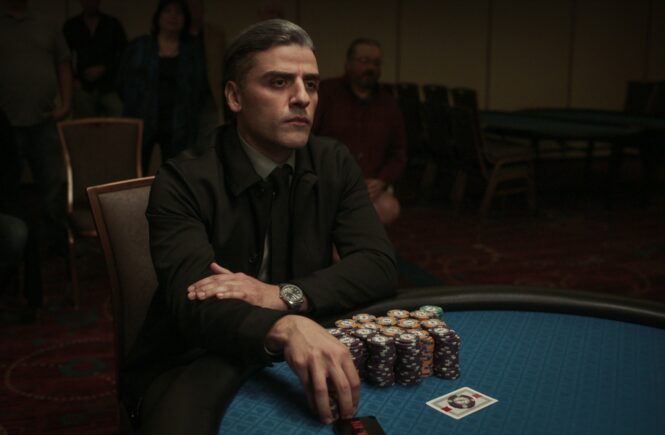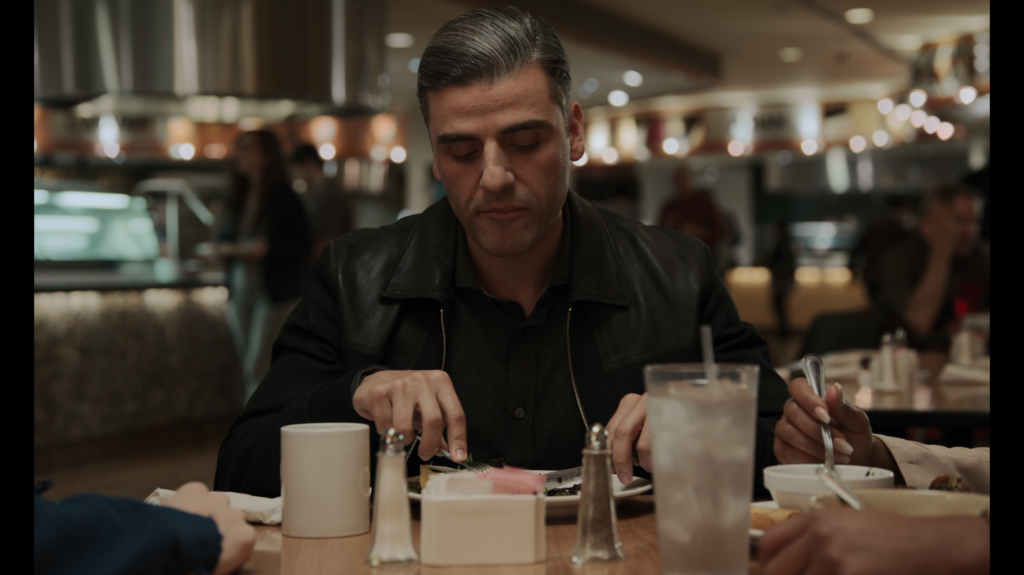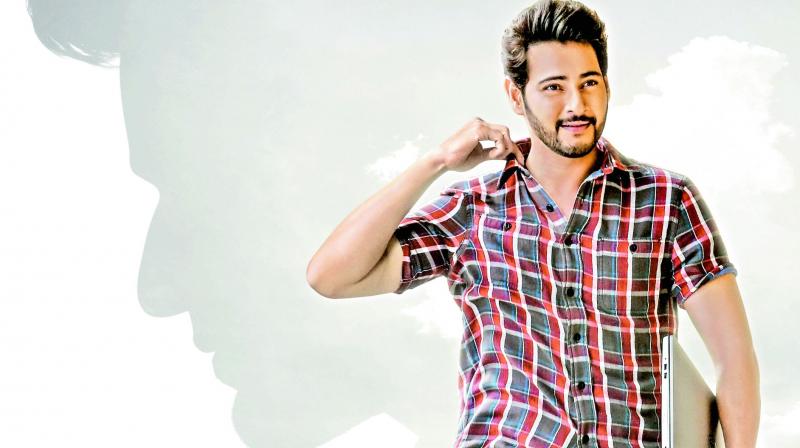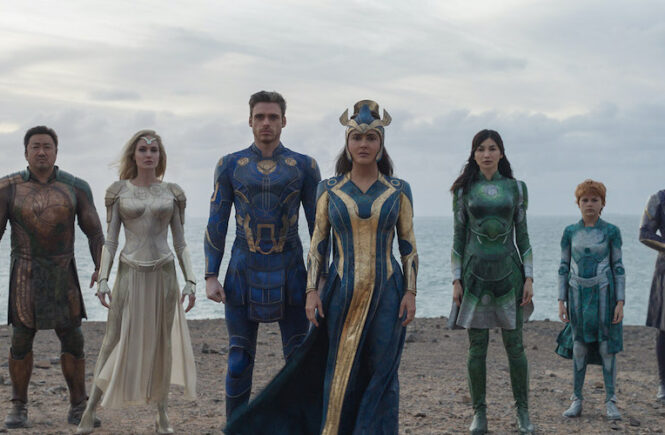“The feeling of being forgiven by another and forgiving oneself are so much alike there’s no point in trying to keep them distinct.”

The opening titles of the film play over an extreme close-up of a green blackjack table. The simplicity of the background reminded me of the way Yasujiro Ozu started his films. Ozu would begin his films with similarly simple backdrops to convey to the audience the simple and human story they were about to see. This is quite fitting for “The Card Counter”. While the story itself is not quite simple, the manner in which it is told is very conservative, and at the heart of this film is something achingly human.
The film is told from the perspective of William Tell (Oscar Isaac), AKA Tillish, the names here hold quite a lot of significance as the film progresses. Tell closely resembles characters that Schrader has written in the past, most notably Travis Bickle from “Taxi Driver” and John LeTour from “Light Sleeper”. He is a man weighed down by the guilt of his past actions. Though he has already served 8 years in prison for his crimes, Tell believes that nothing can ever redeem him for what he has done.
Tell goes around from town to town, religiously playing cards for modest sums of money. He stays in motel rooms where he wraps up all the furniture in white cloth, taking down any pictures. I assume he does this in an attempt to make his room look more like a prison cell. Though Tell is a man released from prison, he still lives a life of confinement.
There is a great scene in the film where Tell is having dinner with The Kid (Tyler Sheridan) and LaLinda (Tiffany Haddish). As the scene begins it is shot at about hip length from some distance, observing the characters. As the scene progresses the camera pushes in more and more onto Tell’s face until he is the only one occupying the frame. From this you really get a sense for how lonely and detached he is. Even in a group, he is all by himself.
Tell’s routine gets broken when The Kid comes into his life. Tell begins to help out The Kid in an effort to wean him off the wrong path. An idea develops here of an older man trying to atone for his past by helping out a younger kid in need.
The entire film has an extremely sleek and reserved look to it. From the gorgeous wide shots of casino spaces to Tells’ black suit. There is a mysterious and haunting quality that the film takes on, aided by an equally evocative score. All of this adds up into something incredibly effective. The choice of using an extreme fish-eye lens to portray the past events which weigh Tell down, give those scenes a nightmarish quality that jarred me and it works brilliantly within the film.
All this goes to show just how well this film is directed. I’m not incredibly familiar with Scrader’s work outside of his collaborations with Scorsese, but after seeing this I will definitely be going back to see some of his directorial efforts.

Oscar Isaac gives his best performance to date. He embodies this character to the bone. I have seen Isaac in many roles over the years, but there was never a moment during this film when I looked at the screen to see Isaac, I only saw Tell. Tiffany Haddish didn’t quite work as well for me. Her first scene with Tell took me out of the movie, her delivery seemed a bit off. However, as the film progressed I warmed up to her a little more. Tyler Sheridan as The Kid does a good job and I thought him and Isaac had good chemistry. Willem Dafoe is in this film for only a little bit, but he stands on par with Isaac.
While I would not call this film slow by any means, it takes time to build. The editing here is really great because there was never a moment when I felt bored even though there was not always a lot happening. There is this feeling of tension and repressed anger that pervades the entire film that was extremely engaging. That being said, the material this film draws from (military torture and war crimes) is very heavy and will not be for everyone.
I had seen “The Card Counter” back in September, but my mind keeps coming back to it. It’s a haunting and effective film, one of my favorites of the year. Though the film may deal with some of the more negative aspects of the human psyche, especially the ability of any of us to “tilt” or the capacity that we have to do things we may never have imagined ourselves doing. There is also a very hopeful and forgiving aspect to this film, of characters trying to do the right thing.








